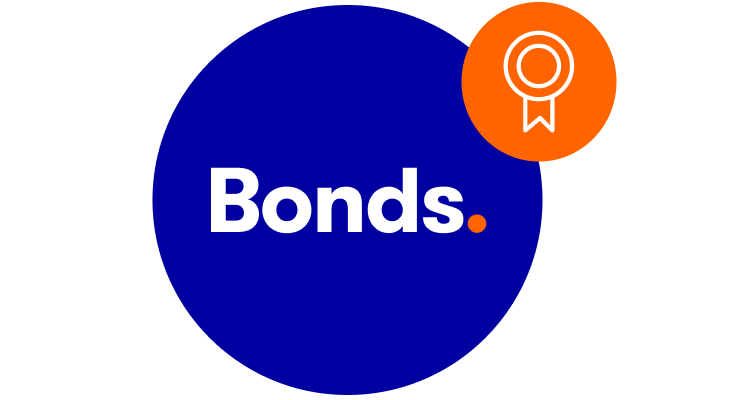Bonds hub
What are fixed rate bonds?

Fixed rate bonds are offered by banks and building societies as a type of savings account. Savers lend their money for a fixed period of time in return for an interest rate payment. The interest rate remains the same until the bond matures.
Bonds are known as fixed income securities because investors know how much income will be received. Many bonds issued by governments or companies pay a fixed rate of interest over their lifespan until they mature. Regular interest payments are paid to investors, known as coupons.
How do fixed rate bonds work?
Savers lend their money for a set length of time in exchange for a certain amount of interest, which is either paid monthly or annually. The amount of interest is fixed, meaning that it cannot be changed during the term of the bond. Savers can access their money at the end of the term when the fixed rate bond matures.
Fixed rate bonds are more suitable for those with a lump sum to invest as to purchase a bond, one-off payment is made at the start of the term.
Generally, higher returns are offered for longer terms. The interest rate is fixed until the account matures.
Example
If you take out a five-year fixed rate bond in the year 2025, and in 2026 interest rates are cut by the Bank of England, then the level of interest will remain unchanged until the bond matures in 2030. However, for those on variable interest rate savings accounts where the money can be taken out at any time, interest rate cuts would result in declining savings rates.
Pros and cons of fixed rate bonds:
Pros
- Usually pay higher rate of interest compared to other savings accounts – such as easy access.
- The certainty of knowing the interest rate will remain fixed and will not be cut.
- Very low risk.
Cons
- The rate of interest may be lower than inflation. If that’s the case, capital is being eroded in real terms.
- Not suitable for regular savings.
- Your money is locked up, and there will be penalty charges or loss of interest if you need to access to it.
How safe are fixed rate bonds?
Fixed rate bonds held with a UK authorised firm are protected by the Financial Services Compensation Scheme (FSCS), which shields £120,000 per person. Bear in mind that some banking brands are part of the same authorised firm.
However, while cash is less risky than investing in the stock market, it would be a mistake to think that it is ‘risk-free’ due to the effects of inflation. If inflation is higher than the return you receive on your money, your wealth is being eroded.
Example
If inflation averages 5% for the next five years, and a five-year fixed rate bond offers a 3% interest rate, then a saver will actually be losing 2% of their purchasing power every year.
Can I withdraw my capital early from a fixed rate bond?
Some providers do allow early withdrawals. However, the trade-off is a heavy penalty such as a reduced interest rate, or a charge. This is called an ‘early access penalty’ or ‘interest penalty’. Sometimes the penalty can result in savers making a loss as it eats into the amount originally invested when the fixed rate bond was taken out.
How do I choose the best fixed rate bond option?
When weighing up the length of the fixed rate bond term, consider whether you can comfortably tie your money up for that length of time.
Some fixed rate bonds pay compound interest, which boosts savings returns. Compound interest refers to the way returns received from the original sum of money also go on to generate income.
Also look out for fixed rate bonds which offer higher interest rates for savers prepared to lend a higher amount.
Tax and fixed rate savings bond
The Personal Savings Allowance (PSA), introduced by the government, means you probably aren’t paying tax on the income you take from your savings. The first £1,000 of savings income for a basic-rate taxpayer and £500 for a higher-rate taxpayer benefit from a 0% income tax rate.
But if you are paying income tax on your savings interest, consider having money in an ISA where it will be tax free.
Are fixed rate bonds a good option?
Fixed rate bonds usually pay higher rates of interest than other savings products such as easy-access accounts because the capital is locked up until the end of the term.
The interest rate of easy-access accounts is generally lower than savings accounts with less immediate access such as fixed rate bonds.
Having both an easy-access and a fixed rate bond savings accounts could be a prudent approach. This allows you to have instant access to some savings, while receiving a higher interest rate on other savings.
Fixed rate bonds FAQs
Learn more about bonds
Learn how to make the most out of your investments with our useful guides.
How to buy bonds
You can trade a number of bonds and gilts via your online ii account. For any that aren't available online, you can deal over the phone by calling us on 0345 607 6001.

The value of your investments may go down as well as up. You may not get back all the money that you invest. If you are unsure about the suitability of an investment product or service, you should seek advice from an authorised financial advisor.